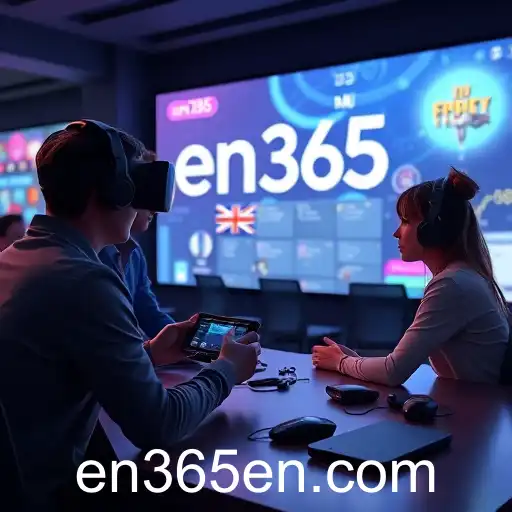
In recent years, the world of language education has undergone a remarkable transformation through digital platforms and interactive methods. Central to this evolution is the use of gaming as a tool for learning, with websites like 'en365' leading the charge in making English learning both engaging and effective. In 2025, the fusion of gaming and education is more refined, offering learners an immersive experience that traditional methods struggle to replicate.
The use of educational games for language learning is not new, but advancements in technology have made these tools more sophisticated and accessible than ever before. 'En365' is at the forefront, utilizing gamification to stimulate interest and retention. By transforming language lessons into interactive challenges, these games encourage users to practice vocabulary and grammar in a contextual setting, mimicking real-life communication.
Moreover, the inclusion of artificial intelligence in language learning games allows for personalized learning trajectories. AI can assess a player's proficiency, providing immediate feedback and adjusting difficulty levels to maintain optimal challenges. This personalization helps learners remain engaged and motivated, avoiding the frustration that can occur with static, one-size-fits-all educational content.
Current trends also highlight the impact of virtual and augmented reality in language learning through games. These technologies offer students an immersive environment where they can practise speaking and listening in a virtual world that mimics the areas where the target language is spoken. 'En365' has been developing VR-based modules that enable learners to interact within lifelike scenarios, offering insights into culture while practicing language skills.
As we consider the broader implications, the influence of educational games extends beyond language acquisition. These platforms also develop critical skills such as problem-solving, adaptability, and digital literacy, which are essential in today's interconnected world. The success of gaming sites in educational sectors also reflects a significant pedagogical shift towards interactive, student-centered learning.
Yet, as with any technological advancement, there are challenges to be considered. Access to technology varies significantly across different regions, potentially widening the educational divide. Additionally, the efficacy of these learning models relies on careful integration into broader curriculums and the avoidance of over-reliance on technology at the expense of fundamental skills.
Overall, as we navigate 2025, the dynamics of digital education continue to evolve, with gaming such as that offered by 'en365' playing a crucial role in reshaping language learning. The ongoing challenge remains to balance technology with foundational teaching principles, ensuring that all learners gain access to quality education, regardless of geographic or economic barriers.


